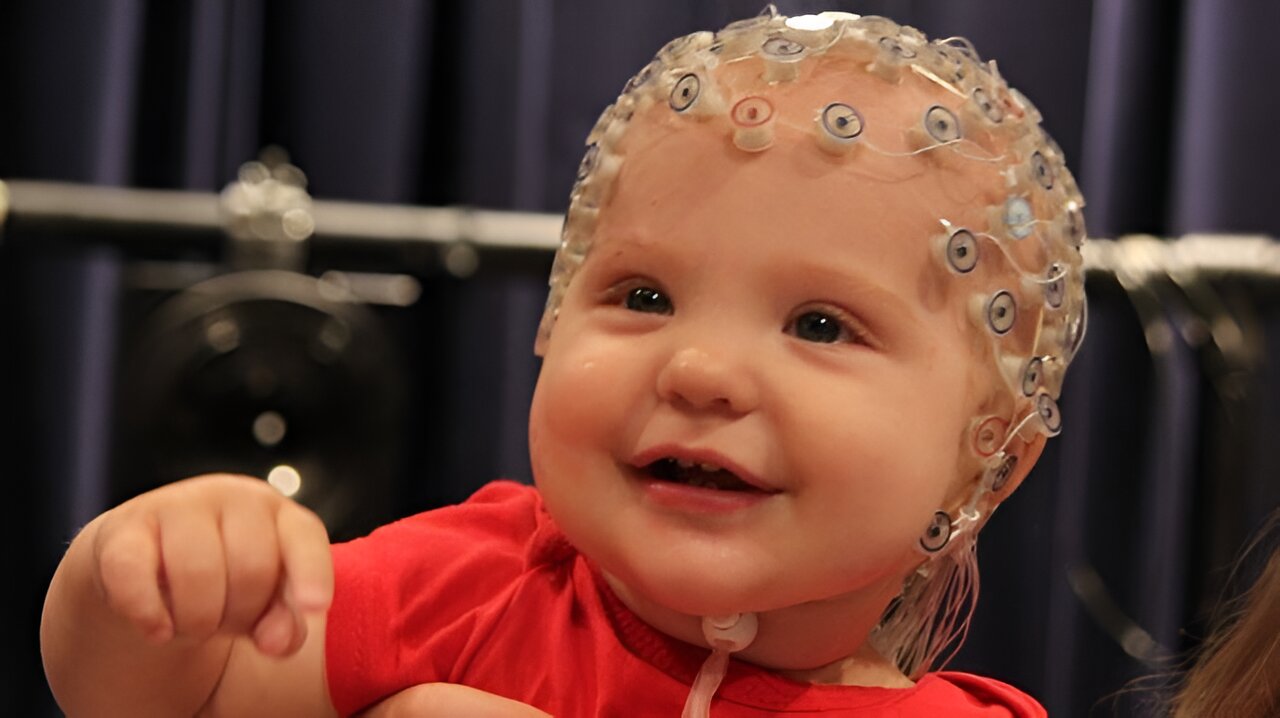
Electroencephalography (EEG) measurements of brain activity showed that better rhythmic processing was associated with certain gut microbiome features. (Credit: Auditory Development Lab, McMaster University)
The bacteria in a baby’s gut may play a key role in the development of their young brain, according to a new study by researchers at UBC’s Faculty of Medicine.
The pilot study, recently published in PLOS ONE, showed that levels of certain types of microbes in babies’ guts were associated with performance in tests of early cognitive development.
“Although this is an early exploratory study, it does provide hints that there are links between the gut and brain development in early life,” said Dr. Brett Finlay, a professor in the faculty of medicine’s department of biochemistry and molecular biology and UBC’s Michael Smith Laboratories.

Dr. Brett Finlay
Mounting evidence has highlighted numerous ways in which the community of microbes that naturally reside in the human gut—the gut microbiome—is connected to human health, including brain health. Several studies in animals and humans have hinted at connections between the microbiome and early-life brain development, but few have examined how differences in infants’ microbiomes might be associated with differences in their emerging cognitive abilities.
“The microbiome plays an important role in the early development of several systems, such as the nervous and immune system, as well as providing another layer of protection against pathogens,” said Sebastian Hunter, a M.Sc student in Dr. Finlay’s lab and the study’s first author, in a recent interview with Newsweek. “During brain development, it has been observed that microbiome dysbiosis can be associated with major neurodevelopmental psychiatric disorders.”
To help deepen understanding of these potential connections, the researchers from UBC and McMaster University analyzed data from 56 infants aged four to six months. The infants each completed at least one of three evaluations of various cognitive abilities, and the researchers assessed their gut microbiomes using fecal samples.
The researchers found that infants who succeeded at a test of social attention known as “point and gaze”—which measures the ability to share focus on an object with another person—tended to have common characteristics within their gut microbiome. This included higher amounts of microbes in the Actinobacteria phylum, the genus Bifidobacterium, and the genus Eggerthella, and lower amounts of microbes in the Firmicutes phylum, the Hungatella genus, and the Strepcococcus genus.
Meanwhile, electroencephalogram (EEG) measurements of the infants’ brain activity in response to hearing a steady beat showed that better rhythmic processing was associated with higher or lower levels of certain microbe types as well as with levels of certain metabolic chemical reactions involving microbes that prior studies have linked to brain and spinal cord development.
“From the microbes we found associations, Bifidobacterium is the one with the most known relevancy to brain development,” Hunter told Newsweek. “Some bacteria from this genus are considered probiotics with strong associations to the gut-brain axis and host immunity and can promote the formation of synapses and microglial function.”
No links were found between the microbiome and measurements of blood flow in the infants’ brains in response to hearing recordings of both forward and backward human speech.
Overall, the researchers say the findings suggest that the microbiome might influence early cognitive development, but more research is needed to confirm and clarify this role.